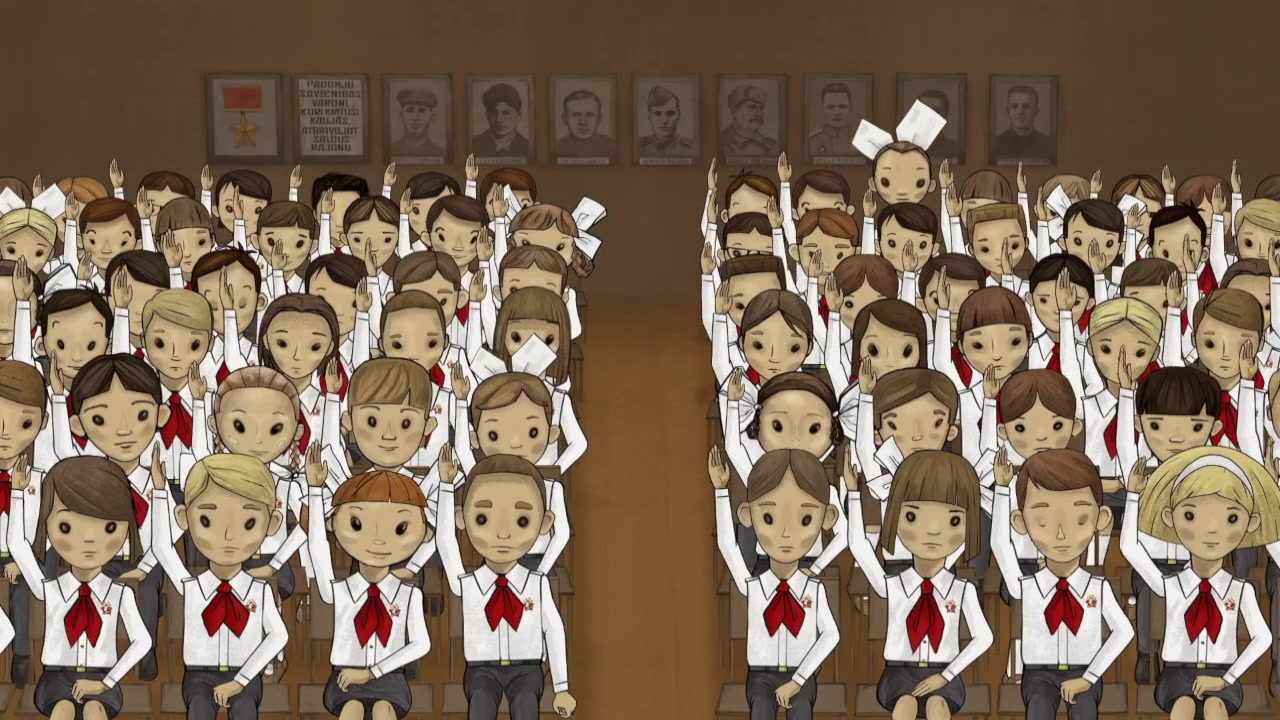


Ilze Burkovska Jacobsen: My Favourite War

Let me start by giving the word to the director:
“My Favorite War” is a personal animated documentary that tells the story of the director’s growing up in Latvia, part of the Soviet Union, during the years from 1970 to 1990. The Soviet regime used World War II as a significant ideological weapon to intimidate and oppress the population during the Cold War. When Ilze discovers the remains of a German soldier in her backyard sandbox, she begins looking for other stories buried underneath the propaganda. “I had to make a choice then – who do I want to become and what do I believe in? The same questions young generations are asking themselves today”.
… and let me stay with the word “personal” as this is what makes the film
different from hundreds of documentaries on the USSR and the oppression. Ilze Burkovska tells her story in first person starting from her childhood with her family as important protagonists. The grandfather is important. He was an “enemy of the state” and ended up in Siberia. His artworks could not be exhibited. Her father was a member of the Communist Party and had good civil positions. Her mother was not a member until she had to join as she otherwise would be without a job; single mother with two children – the father died when Ilze was 7 years old in a car accident.
The title refers to WW2 and the constant propaganda from the leaders of the Soviet Union: We have to be prepared for a WW3. Ilze learns how to handle a weapon , growing up in Saldus in the Courland (Kurland) region, where the Courland Couldron reminded the inhabitants of the German occupation during the last year of the war. A military camp was established in Soviet Latvia and the film includes many scenes of planes in the air of the childhood of Ilze…
… who decides to be a pioneer with the ambition of becoming a journalist. She becomes a very good one, is picked to be a delegate at a camp in Crimea, joined by her friend Ilga, with whom she has a very touching conversation (documentary) of today. Ilga had considered suicide, when she as a school kid had written an essay writing that there was a lack of freedom in the country. The essay had not been approved.
When she was 16, her mother fulfilled her dream to live as a farmer in the countryside leaving the flat for Ilze. It was the time of Gorbatchov and life became easier…
I ask myself: Why is it that I really like an animation documentary film, a genre I know so little about and normally stay away from? The answer is simple: the story is so well written, cinematically conveyed and the child’s perspective accompanies perfectly the naïvity of the drawings.
Mum and Dad and Ilze stands at the Baltic Sea behind the barbed wire, they are not allowed to go closer. The beginning of the film. Ilze and her two children at the Sea. The end of the film… where you also see the Baltic Way and the director organising an exhibition of her grandfather’s painting.
Norway, Latvia, 2020, 80 mins.